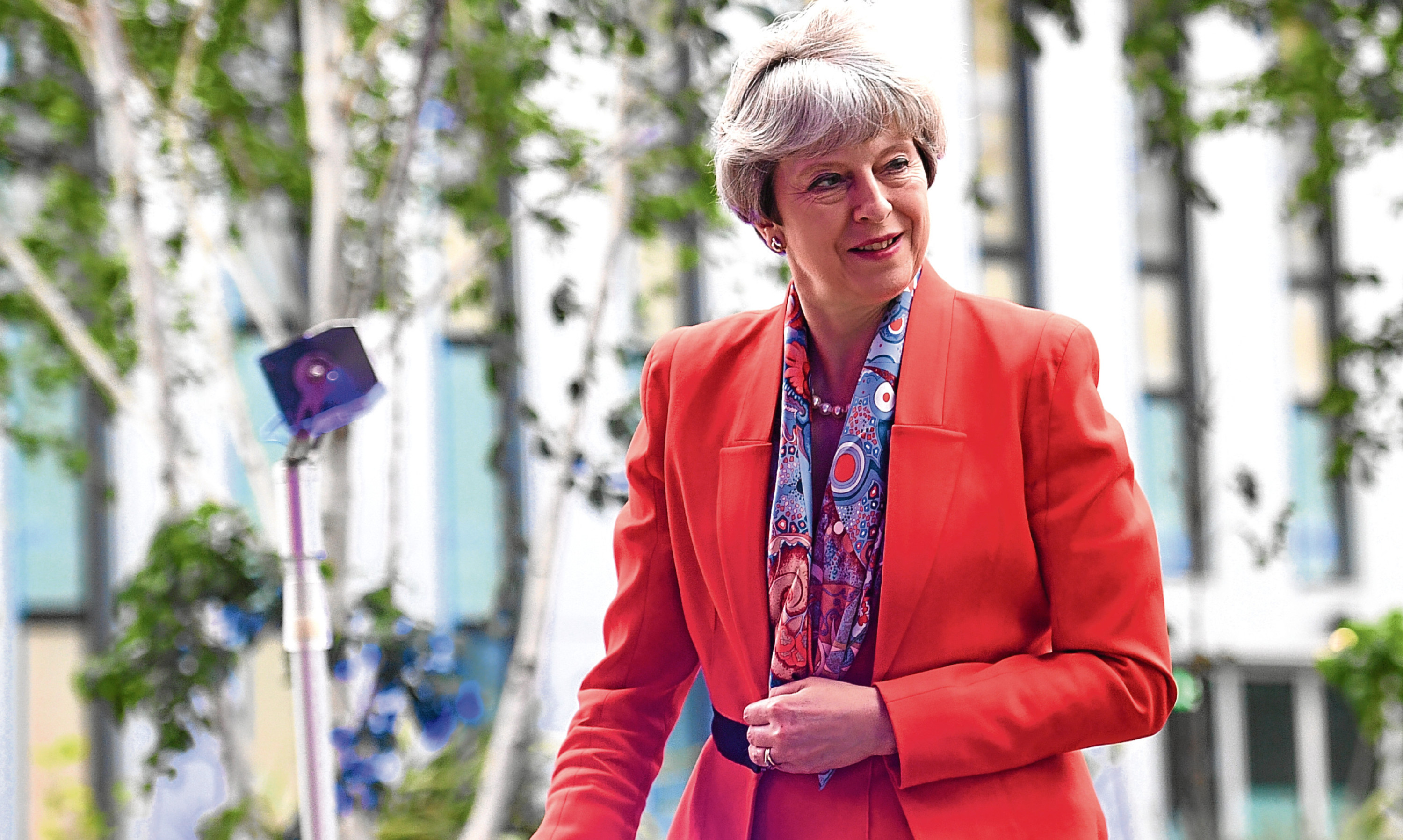Sir, – It cannot be acceptable for any political leader to enter a radio or television studio and not know the answer to two basic questions.
How much is the policy they are there to promote going to cost? How is it going to be paid for?
On both counts, Labour leader Jeremy Corbyn fell short when he attended an edition of the BBC’s Woman’s Hour to talk about his party’s childcare plans.
He certainly had a bad day (May 31) but not in my view as bad a time as Prime Minister Theresa May had at the hands of Jeremy Paxman on Channel 4/Sky News on Monday evening.
The strong and stable pretender was made to look at best vacillating and at worst duplicitous.
The former Newsnight presenter drew attention to her u-turns on Europe, on whether a general election should be held at all and on taxation of small businesses.
He put her on the spot on her record as Home Secretary on immigration and national security.
She can feel fortunate that she was appearing on a minority taste news channel.
It cannot hide the fact that she fell short on the image of the safe pair of hands she is trying to promote.
I was reminded a bit of the famous Vince Cable jibe about Gordon Brown’s transformation in the space of a few weeks from Stalin to Mr Bean.
Her prospects of a landslide victory on June 8 seem much less assured despite Mr Corbyn’s real problems with both presentation and preparation.
Bob Taylor.
24 Shiel Court,
Glenrothes.
Westminster holds the cards
Sir, – Nicola Sturgeon claimed at her manifesto launch that she believes if the SNP wins a majority of Scottish seats next week, then her second independence referendum demands are “reinforced”.
Does Ms Sturgeon genuinely believe this? I don’t think so.
Even those polls most pessimistic for the SNP predict they will secure 34 out of 59 seats; most assume they will take 40-something constituencies.
Ms Sturgeon is confident she’ll win a majority of Scottish seats. But she also knows full well that, if the Tories win across the UK on June 8, there will be no separation referendum before 2020 and probably no prospect of a further independence vote until after the next Holyrood election.
Ms Sturgeon is political game playing, though with negligible chance of winning.
The nationalist leader tells us if the Tories refuse a referendum it is an onslaught on democracy.
But polls suggest the SNP share of vote will most likely drop from nearly 50% in the 2015 election to closer to 40%.
There will be an easy argument to make that holding a referendum is anti-democratic: Scots will be deemed to have voted against a referendum.
Mrs May – or perhaps Jeremy Corbyn – holds all the cards. We can expect turbo-charged grievo-max politics from Ms Sturgeon and her remaining MPs.
Martin Redfern.
Merchiston Gardens,
Edinburgh.
Scotland needs economic plan
Sir, – For the first time, the Office for National Statistics ( ONS) has broken down the United Kingdom budget region by region, which underlined the dependence of the UK economy on London and the south-east of England.
In 2015/2016, Londoners provided £3,070 more in tax revenues than they received in public spending.
In the south-east of England and the east of England, the figures were £1,670 and £242 respectively.
Every other part of the United Kingdom, including Scotland, was in deficit and reliant on the surplus generated by London to be recycled by Westminster to the less well-off regions of the country.
In Scotland, spending exceeded tax revenues by £2,830 per head, the highest of all but four of the UK’s 13 regions.
Scotland and Northern Ireland received the highest level of state funding per person at £13,050 and £14,020 respectively.
The figures tally with the most recent Government Expenditure and Revenue Scotland statistics, and include public spending in Scotland both devolved and reserved.
First Minister Nicola Sturgeon is happy to use independence to distract from her government’s economic shortcomings, but these figures are the latest reminder that the health of the economy is central to her ambitions.
She must put forward practical measures capable of remedying its weakness rather than simply allow London to bankroll her profligate public spending policies.
Donald Lewis.
Pine Cottage,
Beech Hill,
Gifford.
Brexit calls for strong leader
Sir, – If Theresa May cannot trust herself, or be trusted by her party, to debate directly with opposition party leaders, or indeed with other members of her own party, nor to face up to potentially difficult questions from the general public, how can she be trusted by the people of the country to head up the Brexit negotiations, which will be the most difficult, and most important test of leadership in the recent history of the country?
Les Mackay.
5 Carmichael Gardens,
Dundee.
No sell-out by Green Party
Sir, – Your correspondent Allan Sutherland could not be more wrong when he accuses the Greens of “betrayal of environmentalism” for supporting independence.
The Westminster Government has slashed renewables support, is promoting fracking, is planning to scrap environmental protection laws, and continues to dump obscene weapons on us.
The only way to protect the environment here is independence.
Andrew Collins.
Ladyburn House,
Skinners Steps,
Cupar.
